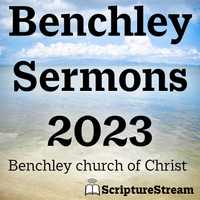Mark 3, continued:
- Mark 3:22 – See John 11:48-50. The Jews were afraid of losing their power.
- Mark 3:28-30 – The “Holy Spirit” here could be referring to the “divine nature of Christ.” They were denying Jesus’ deity and attributing it to Satan.
- Matthew 12:34 – Matthew records Jesus’ strong description of His accusers.
- John 12:37
- Matthew 13:14-15
- Acts 28:25-27
- John 12:37-41 – Isaiah showed that the underlying sin was hardness of heart.
- The “eternal sin,” therefore, was a wicked mindset that would follow these hardened rebels into eternity, where an “eternal judgment” (Hebrews 6:2) would be pronounced, and an “eternal punishment” of unending misery awaited them (Matthew 25:46), because there is no post-mortem plan of salvation (Hebrews 9:27). So, we see the final end Jesus announced upon those who deny the power and word of God, attributing it to another source, in this case, Satan.
- Is it possible to be guilty of this sin today? Yes! See John 20:29; I Peter 1:8-9. If someone persistently rejects the New Testament evidence that supports Jesus’ credibility, hasn’t he in principle done the same as these Pharisees?


